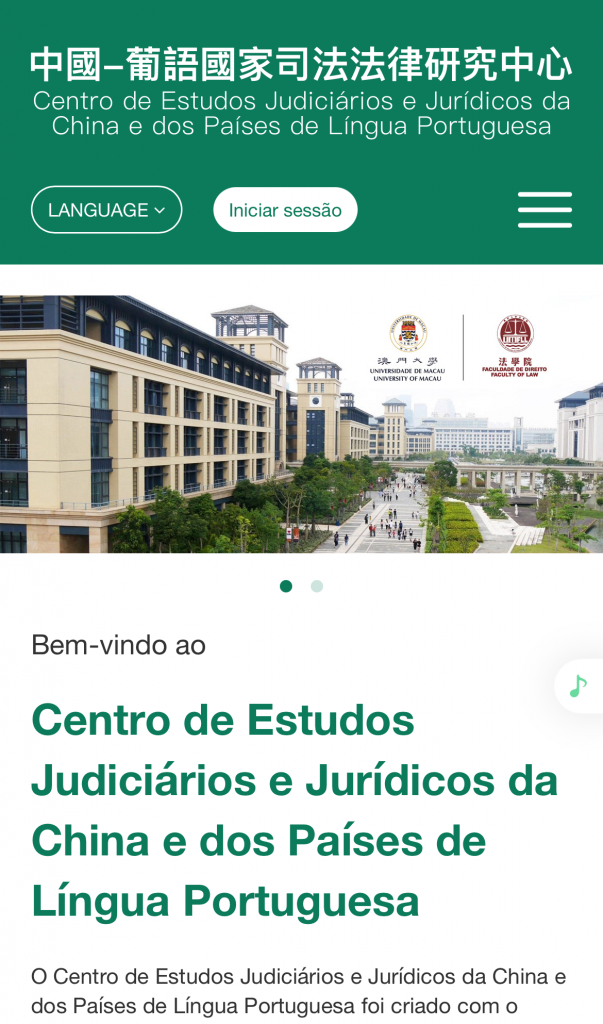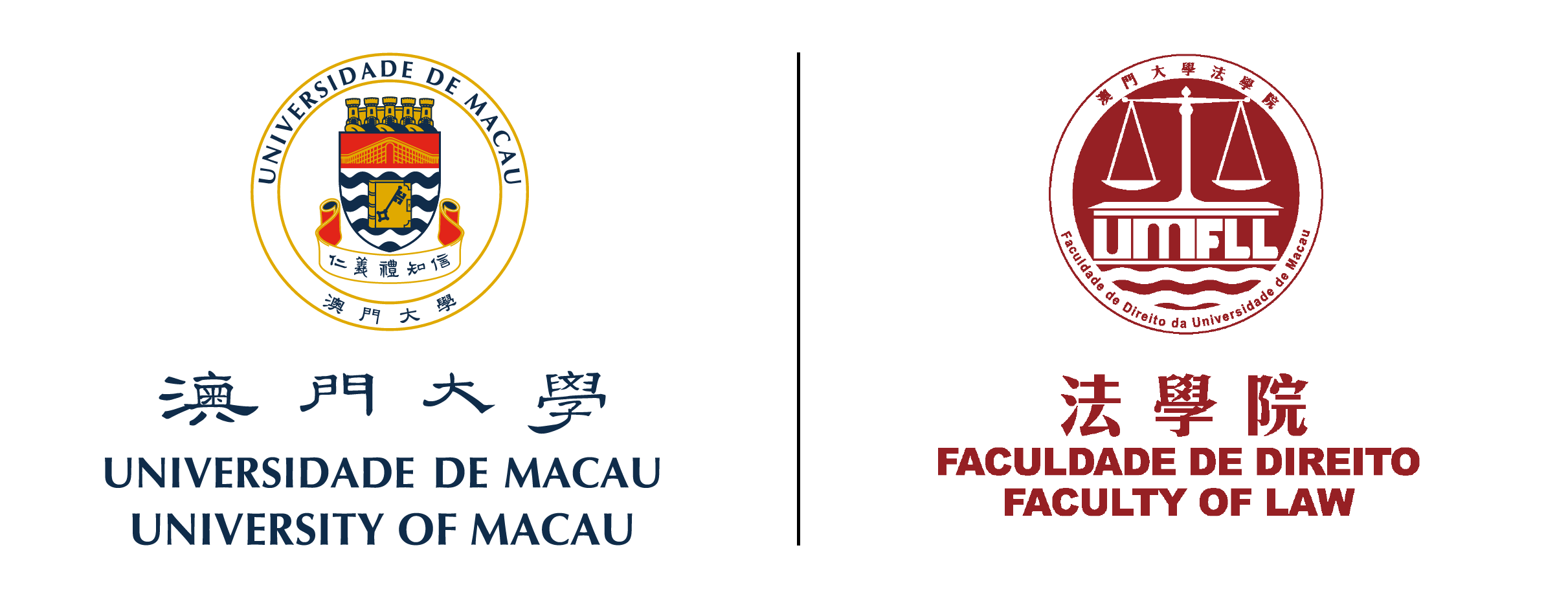The Centre for Judicial and Legal Studies of China and Portuguese-Speaking Countries at the University of Macau (hereinafter the “Centre”) has officially launched its Lusophone Legal Database, now fully operational. The launch of this platform marks a major milestone in the Centre’s efforts to build digital legal resources, providing robust support for legal cooperation and judicial exchange between China and Portuguese-speaking countries. Users can access the platform free of charge via the Centre’s official website to consult legislation and case law from Lusophone jurisdictions.
Established jointly by the Supreme People’s Court of China and the University of Macau, the Centre is a specialised platform aimed at leveraging Macau’s unique position as a bridge between China and Lusophone countries. It serves the national strategy of high-level opening-up and the development of foreign-related rule of law. The Centre’s day-to-day operations are managed by the Faculty of Law of the University of Macau, under the professional guidance of the Research Office and the Department of International Cooperation of the Supreme People’s Court.
The Centre’s core missions include researching and promoting the legal and judicial systems of China and Lusophone countries, providing legal ascertainment and translation services, developing bilingual legal databases, and training legal professionals with international outlook and linguistic competence.
The database currently contains over 2,000 pages of legal content, focusing on key legislation, administrative regulations, and leading case law from countries such as Portugal Brazil and Angola. It offers a multilingual interface in Simplified Chinese, Traditional Chinese and Portuguese, along with user-friendly search tools enabling queries by country or topic. It is a valuable tool for researchers, legal practitioners and policy experts.
Professor Tong Io Cheng, Director of the Centre, stated: “The completion of this legal database is the result of years of dedicated work by our team under the guidance of the Supreme People’s Court. It responds to the country’s call to strengthen foreign-related legal development. This professional, systematic, and open-access platform will foster knowledge-sharing between China and Lusophone countries and provide strong support to both academia and legal practice.”
Coinciding with the database launch, the Centre has also completed an internal reorganisation. Ms. Jiang Yi Wa, Senior Instructor at the Faculty of Law, has been appointed Deputy Director. With extensive expertise in Lusophone legal systems and cross-cultural legal cooperation, she will be responsible for the expansion of database content and other key Centre initiatives.
In addition to the database project, the Centre is advancing several major cooperation initiatives, including:
– Ongoing expansion and optimisation of the China–Lusophone Legal Database;
– Co-organisation with the Faculty of Law of the University of Coimbra of an international symposium on Public Law (International Law, Constitutional Law, Administrative Law);
– Planning of a Sino-Lusophone International Symposium on Evidence Law;
– Institutional dialogue with judicial authorities from Brazil;
– Launch of exchange mechanisms with judicial bodies in Timor-Leste.
The database will provide vital technical and informational support for these endeavours. Under the continued guidance and support of the Supreme People’s Court, the Centre will further consolidate its role as a specialised platform for legal cooperation between China and Portuguese-speaking countries, enhancing its international presence.
The Centre warmly welcomes users from all sectors to explore the platform and offer valuable feedback. Looking ahead, the Centre will continue to strengthen exchanges with Lusophone institutions, build a deeper and more dynamic knowledge system for Sino-Lusophone legal studies, serve the Belt and Road Initiative and global legal governance, and, through the database platform, enhance the training of foreign-related legal professionals to support China’s participation in the making of international legal norms and rule-based engagement.
For more information, please visit: https://lawcentrechinapsc.org/pt/home



